
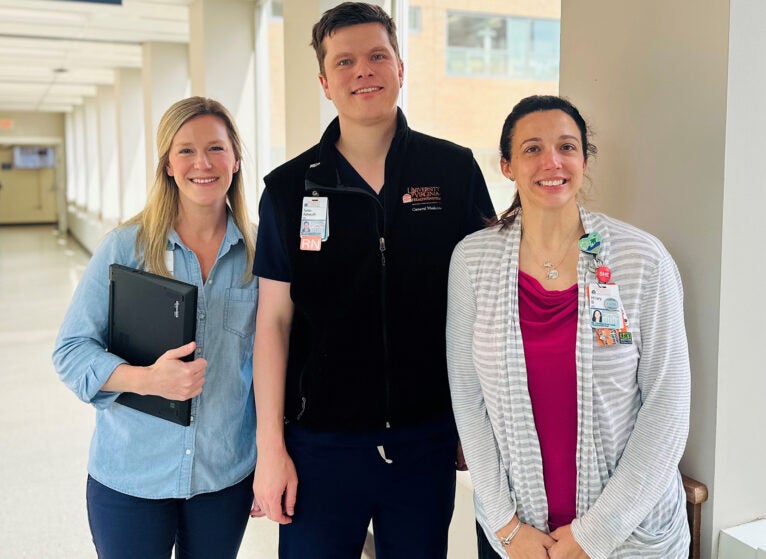
From left: Ashley Walters, Ty Ashworth, and Hillary Bowen.
First Cohort Graduates From Immersive Evidence-Based Practice Academy
When Pam DeGuzman, PhD, MBA, RN, CNL, first took on the role of UVA Health Nurse Scientist in 2022, she noticed there was room for improvement in how consistent certain practices were with current research. “I've spent the last year and a half working to stand up programs like this to help the nursing body incorporate methods of evidence-based practice and help drive culture change,” says the UVA School of Nursing Associate Professor. This month, DeGuzman and the Office of Nursing Research were excited to launch one of those programs — the Evidence-Based Practice (EBP) Academy — with support from nursing leadership.
The intensive, year-long immersive research experience involves six educational sessions and a final evidence-based research project. Recently, EBP Academy held its first graduation as the first three participants — all UVA Health University Medical Center nurses — presented their findings to a group including Kathy Baker, PhD, RN, NE-BC, Chief Nursing Officer, UVA Health University Medical Center.
It was a moment of professional pride for the graduates. “One of the reasons this is strategically important is retention,” DeGuzman says. “It gives nurses an opportunity to practice professionally in a way that’s not about taking care of a patient. They get to think about a problem and work all the way through it with our academy faculty.”
DeGuzman wanted the framework for the program to enable critical thinking and a disciplined approach to improving outcomes. Each meeting of EBP Academy is an eight-hour class held every four to six weeks. Nurses will be excused from eight hours of clinical care to make time for this opportunity, DeGuzman says, as well as given an additional eight hours a week to work on their research projects. “Nurses have said, ‘I'd love to take advantage of these professional opportunities, but there's no time dedicated.'" Carving out the time to make this academic endeavor more achievable “is going to be transformative for them and for patient outcomes.”
The first three EBP Academy participants now share their experiences:
Standardizing New Graduate Nurse Orientation
Hillary Bowen, MSN, RN, ACCNS-AG, CCRN, CEN is a unit-based nurse leader (UBNL) in the Thoracic Cardiovascular Intensive Care Unit (TCV-ICU). She spent her year in EBP Academy working on a standardized, evidence-informed, new graduate nurse orientation program for her high acuity, specialized unit.
Inspired by feedback from nurse preceptors who felt new graduate nurses were underprepared during orientation, Bowen facilitated two focus groups with new graduate nurses who echoed these concerns. The TCV-ICU has a higher number of new graduate nurses than before COVID-19, and Bowen looked for research to help these nurses feel adequately prepared to care for highly complex patients.
Bowen feels emboldened by the experience. “Attending EBP Academy reinforced and empowered me to be able to say: ‘What does the literature say?’ When I do this, it prevents me from wasting time by throwing solutions at problems. I learned that if we can’t find evidence in the literature then we do research so that others can use what we find.”
She was excited to be in the first cohort and appreciated the support from leadership. “The fact that Kathy Baker fully supports EBP Academy, and even offers to give the time back to the nurses and units if a person wants to participate, shows how invested UVA is in supporting and producing evidence-based work. Pam DeGuzman is such an amazing and knowledgeable instructor, and getting to learn from her was an irreplaceable experience.”
Assessing Pain in Hospitalized Older Adults With Cognitive Impairment
Ty Ashworth, UBNL, BSN, RN, CMSRN, is a UBNL for 3 West and 3 North, both adult acute care medicine units. He focused his time in EBP Academy on an idea that surfaced during a forum held by the Clinical Practice Committee, which he chairs.
The goal was to “implement an evidence-based tool in the inpatient setting that best identifies and assesses pain in hospitalized older adults with cognitive impairment, who have a limited ability to self-report pain,” he says.
Ashworth, along with Nikki McLamb, BSN, RN, CCRN, TCRN, identified a difference in nursing practices after the merger between UVA Health University Medical Center in Charlottesville, and the three, now-UVA Community Health medical centers in Northern Virginia, when it came to assessing pain in older adults with cognitive impairment.
This inspired them to review existing literature to determine the most accurate tool to assess pain in this “vulnerable patient population whose pain is [according to research] often underreported and undertreated,” Ashworth says.
The work was “rewarding, inspiring, empowering, and fun,” and dovetailed with Ashworth's studies as he pursues his master of cience in nursing at UVA School of Nursing. “EBP Academy showed me what could be,” he says. “Working toward implementing sustainable practice changes in a collaborative environment with other CNLs made me feel like I was a part of a bigger mission. It inspired me and invigorated my passion to make the biggest impact I can as a UBNL.”
Improving Nurse Confidence
For Ashley Walters, MSN, RN, clinical nurse leader (CNL) in the NICU, EBP Academy provided a chance to bolster skin-to-skin holding for NICU patients and caregivers, called "kangaroo care."
“Kangaroo care is an international best practice for our patient population and has multiple positive implications,” she says. “While working with CNL students during their practicum, we identified the opportunity to improve nurse confidence in facilitating kangaroo care. Given the research on the outcomes this supports for our patients and caregivers, combined with the motivation of our nurses to improve their confidence in this skill, it was a priority for the unit, so a natural project choice for us.”
Walters feels EBP Academy aligns with the UVA Health strategic plan initiative of providing the best care for our patients and the safest environment for our teams. “To do this, we have to understand and use the right tools to solve problems and implement best practice,” she says. “EBP Academy is one part of building this structure in order for our teams to know how and be empowered to make sustainable change.”
'Ultimately About the Best Care for Patients'
DeGuzman says the program is now open for applications from the nursing body at large. Applicants need to have the support of their supervisors to participate, because the projects are expected to be strategic and related to important outcomes, as determined by a participant’s manager and director.
This is crucial for leadership buy-in, DeGuzman explains. The approval process “starts to put together the team of stakeholders who are willing to invest in making change, because so much of this process from beginning to end is really about changing clinical practice.”
And changing clinical practice is, at its core, about providing even better care. “Anything where we can elevate the work they're doing — it's ultimately about the best care for patients,” DeGuzman says. “That's all anybody really wants.”
Latest News

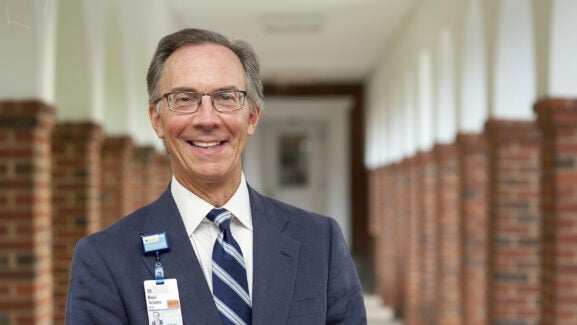
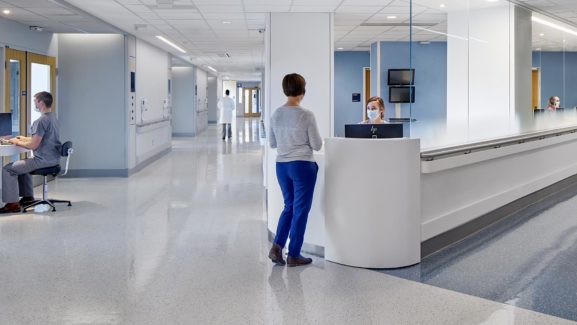
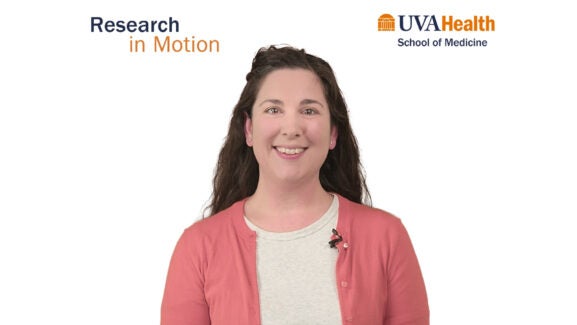
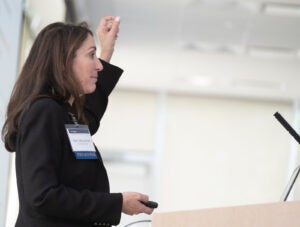
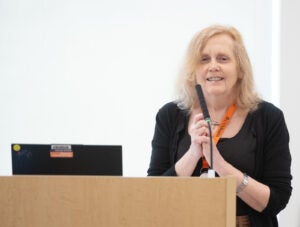
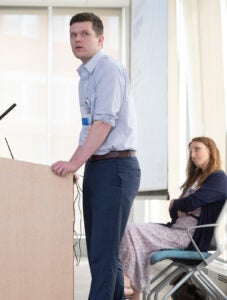
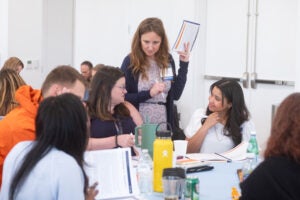
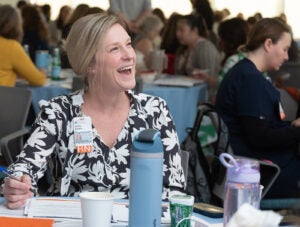
What a great opportunity for nurses at UVA to get an in-depth experience with evidence-based research to change practice! It is such a blessing to work at UVA and I am honored to be a UVA nurse. As a manager I would support any team member who wanted this opportunity!
OUTSTANDING!! Congratulations to these amazing nurses.
So proud of this work! Thanks for your commitment and dedication!